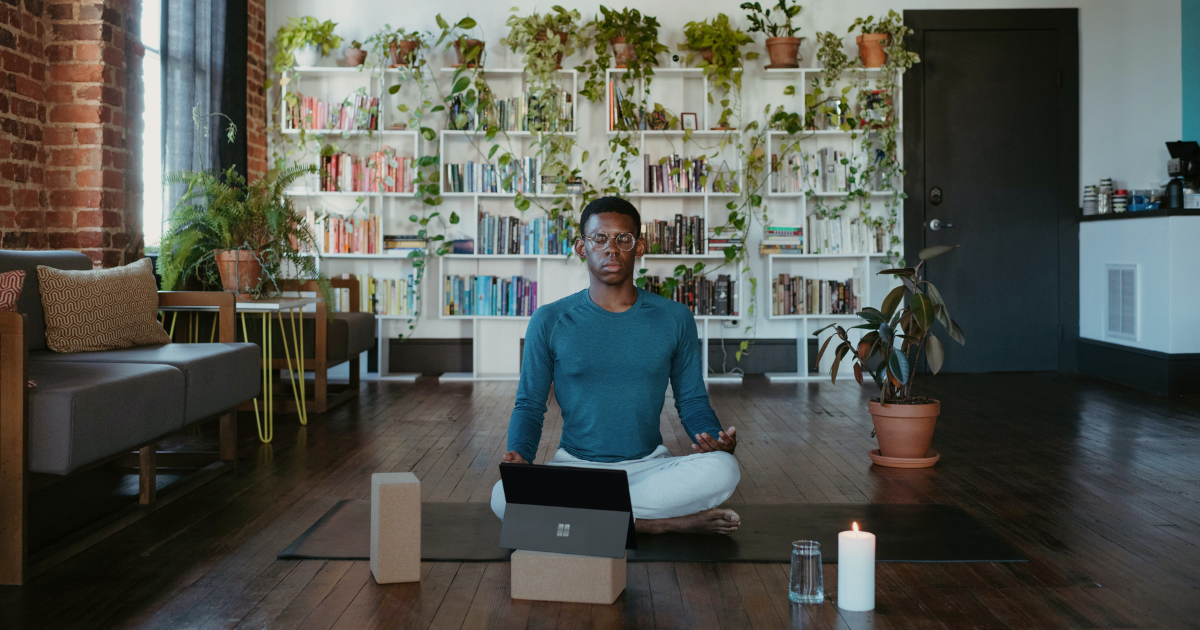Meditation - A Life Essential
 Written by: Shubh Borad, 4th Year Health Sciences
Written by: Shubh Borad, 4th Year Health Sciences
Whether you are a first-year student or have been at Western for a while, you have probably dealt with feelings of stress and anxiety. To combat these feelings of stress, you can partake in numerous mindfulness activities; they can aid you to direct your time and energy towards achieving your goal grades instead of wasting it by excessively stressing. Meditation is one such activity that is used across the world as a stress reducer. When I meditate, I tend to be calmer and more level-headed, even in typically anxiety-inducing situations. As a result, I am better able to manage my time and energy and live a more relaxed, happier life. Based on my experiences and research, I hope to share with you the importance of meditation and a simple guide to meditating effectively in this blog.
Why Should You Meditate?
Meditation not only promotes overall mindfulness but is also associated with many psychological and physiological benefits for you and your body. Every day, you are faced with countless stressors; some are obvious, such as an upcoming submission or job interview, while others may be more ambiguous, like running late for class, forgetting breakfast, or having your phone die randomly. If you do not have an effective outlet to unload this burden, daily stressors can accumulate over time, and eventually have significant effects on your health. Those who regularly practice meditation can easily unload everyday stressors as overtime, their minds have been trained to think more positively. For example, practisers can have an easier time perspective-shifting in stressful situations, have increased self-awareness, better imagination, creativity, patience, and tolerance abilities. They can live happily in the present instead of dwelling on the past, or anxiously anticipating the future. Likewise, meditation has shown potential in the symptom management of many health disorders. Mayo Clinic, a reputable medical education and research institute, indicates that medication reduces symptoms of asthma, cancer, chronic pain, heart disease, tension headaches, and sleep problems. As a student, and even in general, promoting your health should be your top priority; if your body won’t cooperate, all your other priorities will also be compromised. Based on the benefits I shared, it is evident that engaging in mediation can help you achieve this.
**Disclaimer. Consult with your doctor before using meditation as a substitute for any medical treatments. **
Meditation Guide
Now that you know why meditating is so great for you, let's discuss how to actually do it. Firstly, meditation is an umbrella term that covers an array of different styles and techniques from around the world. Some common forms of meditation are spiritual meditation, focused meditation, movement meditation, visualization meditation, and mantra meditation; the style that is best suited for an individual varies from case to case. In this blog, I am going to be highlighting a simple, introductory meditation guide from mindful.org, linked below, that helped me get started on my journey. To start meditating, you must:
- Find a quiet and calm place where you are able to easily relax.
- Set how long you want your meditation session to last. Beginners typically start with 5-10-minute-long sessions.
- Sit in a stable and comfortable position that you can maintain for the duration of your session. People typically sit cross-legged on the floor, kneel, or sit in a chair with their feet flat on the floor.
- Close your eyes and as you breathe in and out, focus on feeling each breath.
- As your mind begins to wander, gently notice it and return your attention to breathing.
- Accept that those wandering thoughts are a part of meditation; do not fixate on them or harshly judge yourself for having them. As the previous point stated if they come and you notice them, just return your focus on feeling each breath.
- Gently open your eyes when you are ready to conclude your meditation session and take a moment to take in the environment around you, your thoughts and emotions, and how your body feels.
Final Thoughts
Whether you want to better manage the stresses of being a student, have other issues that trouble you, or just want to be more mindful, participating in mediation has the potential to have a lasting positive impact on you, your health, and your overall life. I hope this blog, and the included guide help you on your journey as much as it has helped me on mine.
Check out more wellness blogs:

Sleep Now, Work Later
No matter how important you feel school is, sleep is also crucial to your well-being. Read the full article now!

Loving Yourself as a Person But Not a Student? Here’s How to Love Both.
We all face burnout, and it's important to recognize those feelings and take care of ourselves. Read the full article now!

Five New Things That Make Me Happy During COVID
Finding little ways to brighten each day is essential amidst the challenges posed by the pandemic. Read the full article now!
Published on

